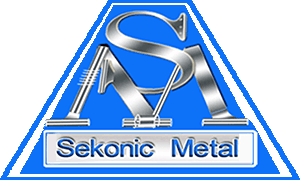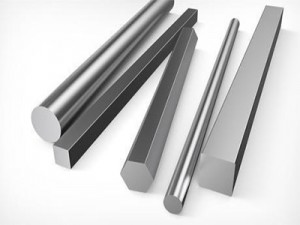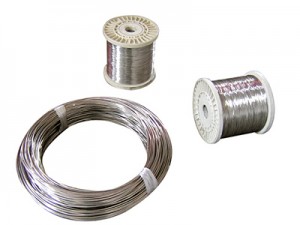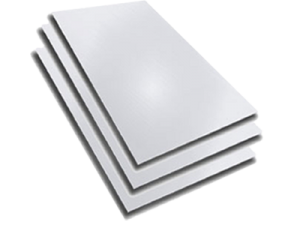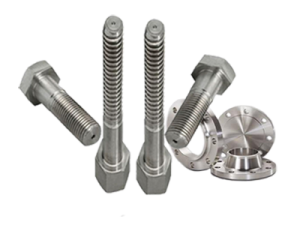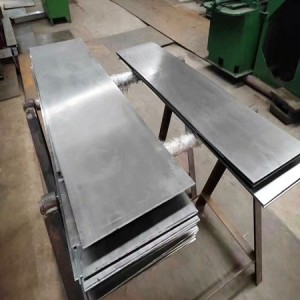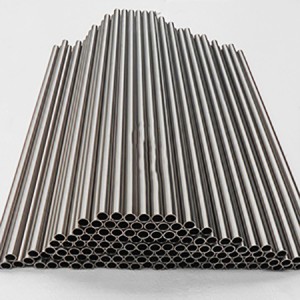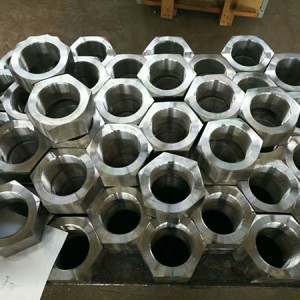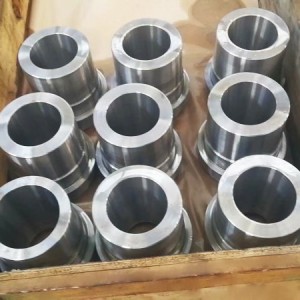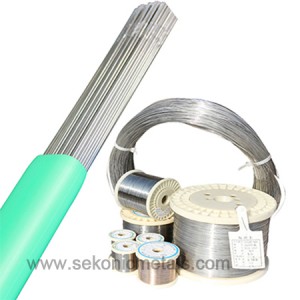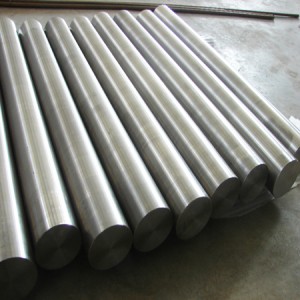Stainless steel TP321 bar/ Seamless steel pipe /Sheet.
Common Trade Names: 321 Stainless, Alloy 321,UNS S32100
321 is a titanium stabilized austenitic chromium-nickel stainless steel developed to provide an 18-8 type alloy with improved intergranular-corrosion resistance.Because titanium has a stronger affinity for carbon than chromium, titanium carbide tends to precipitate randomly within the grains instead of forming continuous patterns at the grain boundaries. 321 should be considered for applications requiring intermittent heating between 8009F (427°C) and 1650°F (899°C)
| Alloy |
% |
Ni |
Cr |
Fe |
N |
C |
Mn |
Si |
S |
P |
Ti |
|
321 |
Min. |
9 |
17 |
balance |
5*(C+N) | ||||||
|
Max. |
12 |
19 |
0.1 | 0.08 | 2.0 | 0.75 | 0.03 | 0.045 | 0.70 |
| Denstiylbm/in^3 | Coefficient ofThermal Expansion (min/in)-°F | Thermal Conductivity BTU/hr-ft-°F | Specific Heat BTU/lbm -°F | Modules of Elasticity (annealed)^2-psi | |
|---|---|---|---|---|---|
| at 68 °F | at 68 – 212°F | at 68 – 1832°F | at 200°F | at 32 – 212°F | in tension (E) |
| 0.286 | 9.2 | 20.5 | 9.3 | 0.12 | 28 x 10^6 |
| Grade | Tensile Strength ksi |
Yield Strength 0.2% Offset ksi |
Elongation - % in 50 mm |
Hardness (Brinell) |
|---|---|---|---|---|
| 321 | ≥75 | ≥30 | ≥40 | ≤217 |
321 Standards and Specifications
AMS 5510, AMS 5645, ASME SA 240, ASME SA 312, ASME SA 479, ASTM A 240, ASTM A 276, ASTM A 276 Condition A, ASTM A 276 Condition S, ASTM A 312, ASTM A 479, EN 1.4541, QQS 763, QQS 766d, UNS S32100, Werkstoff 1.4541
321 Available Products in Sekonic Metals
Why Steel alloy 321 ?
• Oxidation resistant to 1600°F
• Stabilized against weld heat affected zone (HAZ) intergranular corrosion
• Resists polythionic acid stress corrosion cracking
Steel Alloy 321 Application field:
• Aircraft piston engine manifolds
• Expansion joints
• Firearms production
• Thermal oxidizers
• Refinery equipment
• High temperature chemical process equipment
